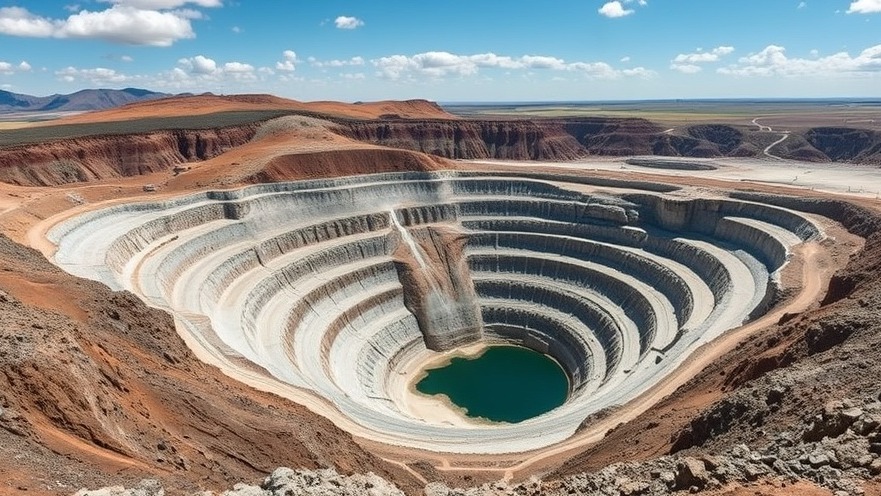
Understanding the Vital Role of Critical Minerals
In today’s technology-driven world, critical minerals serve as the backbone of many industries, from energy to electronics. These vital resources—such as cobalt, lithium, and tantalum—are indispensable for the production of batteries and semiconductors. Given the rapid growth of electric vehicle and renewable energy markets, the demand for these minerals has skyrocketed. However, the current supply chain is heavily dominated by China, raising significant concerns over America’s economic security and independence.
In 'State Department Official Sounds The Alarm On China's Dominance Over Critical Mineral Supply', the discussion dives into America's strategy for critical minerals, prompting an analysis of its implications for national security.
America’s Challenge: Reliance on Foreign Resources
As highlighted in the recent testimony from U.S. State Department officials, America's dependency on foreign nations for processing and refining critical minerals poses a real threat to its industrial capacity and national security. China has established a tight grip over the supply chain, controlling up to 76% of the world’s cobalt production through extensive investments in African mining sectors. This scenario poses a dual challenge; while the re-industrialization of the U.S. requires more local mining and processing operations, there is an urgent need to diversify sourcing away from Chinese control.
A New Strategy: Building Stronger Ties with Africa
Recognizing Africa's vast reserves of critical minerals, the U.S. government aims to secure these resources by fostering partnerships with African nations. The continent is rich in cobalt, lithium, and other essential minerals, making it a strategic component of U.S. supply chains. The administration's plan emphasizes not just the acquisition of raw materials but also the development of return-friendly infrastructure to facilitate trade between African markets and the United States. This includes the proposed libido corridor, a transport route that seeks to bypass reliance on Chinese-controlled channels.
Collaborative Efforts for Sustainable Development
The U.S. government is taking an integrated approach, employing various agencies to support mining projects across Africa. The Export-Import Bank and the U.S. International Development Finance Corporation (DFC) are essential in providing the necessary financial backing for these ventures. The goal is not simply to secure vital resources, but also to promote economic growth in African nations, thereby enhancing regional stability and creating a win-win scenario for all parties involved.
Countering China: A Necessity for National Security
The geopolitical landscape of critical minerals is rapidly shifting. China’s heavily subsidized supply chains have made it increasingly difficult for Western nations to compete at sustainable price points without compromising on environmental and labor standards. Addressing this imbalance is paramount, as America's technical industries suffer from the aggressive tactics employed by Chinese firms.
Future Predictions: Looking Ahead
As America refines its strategies for securing critical minerals, enhanced investment and collaboration with Africa will be crucial. The current geopolitical climate necessitates that Western nations mount a cohesive and unified approach toward ensuring access to these vital resources. The consequences of inaction are dire; failure to shift dependencies may bolster China's economic leverage and threaten long-term U.S. prosperity.
Conclusion: The Call for Action
In summary, as the U.S. undertakes new measures to secure a sustainable supply of critical minerals, it is imperative for individuals and businesses alike to stay informed about the evolving landscape. The future of not only our domestic economy but also our security hinges on these strategic partnerships.
 Add Element
Add Element  Add Row
Add Row 



Write A Comment